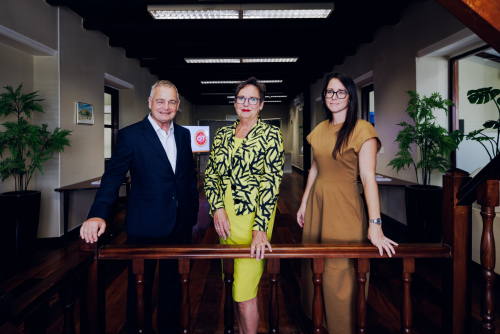 Willemstad:--- The amount Curaçao spends on healthcare is relatively high. In 2023, this amount was approximately 14.7 percent of the GDP, much higher than, for example, Aruba (8.7%) or Sint Maarten (6.5%). This jeopardizes expenditure on other policy areas and leads to high tax and premium burdens. As investigated by the CBCS, the aging of the population further increases the pressure on the healthcare system. It is anticipated that a solution for the CMC’s financial issues will also lead to additional costs for the country. Therefore, Curaçao must make choices. Taking measures now to increase efficiency in healthcare may reduce some of the pain in future years.
Willemstad:--- The amount Curaçao spends on healthcare is relatively high. In 2023, this amount was approximately 14.7 percent of the GDP, much higher than, for example, Aruba (8.7%) or Sint Maarten (6.5%). This jeopardizes expenditure on other policy areas and leads to high tax and premium burdens. As investigated by the CBCS, the aging of the population further increases the pressure on the healthcare system. It is anticipated that a solution for the CMC’s financial issues will also lead to additional costs for the country. Therefore, Curaçao must make choices. Taking measures now to increase efficiency in healthcare may reduce some of the pain in future years.
According to the IMF, Curaçao spends 20 times as much on laboratory services per capita as the average in the Caribbean. There is overcapacity in this sector, a problem that also seems to be relevant to other parts of the healthcare sector. In Curaçao, an average of 20 prescriptions is written per person, compared to 14 in Aruba and 12 in the Netherlands. Also, expensive brand-name medication is frequently used. In Curaçao, many people make use of (expensive) emergency care, whilst they could have been helped by their general practitioner.
Measures
Curaçao can take measures to make healthcare more affordable. A great number of analyses have been made, and now is the time to implement. Over the past years, too few reforms have actually been implemented.
As recommended in the Country Package, strengthening primary care can reduce the pressure on specialists and hospitals. Stricter rules for referrals and a neighborhood-oriented approach are particularly important in this context. The CMC states that strengthening the gatekeeper function of the general practitioner‘s offices can relieve the pressure on emergency care and prevent people with simple complaints from receiving unnecessarily expensive care. In this context, collaboration within the chain is crucial.
As stated by the IMF, pharmaceutical costs can be reduced by means of switching more often from expensive brand-name medication to cheaper generic options. The country has been trying this since 2019, but so far has been unsuccessful. Revision of the basic health insurance package can also contribute to lowering the costs.
Prevention is better than cure. By providing more preventive care and promoting a healthy lifestyle, healthcare costs can be further reduced. Especially considering the imminent aging of the population, it is important that people age healthily.
Currently, there are virtually no financial incentives in the healthcare system. This makes healthcare accessible, but it also means there are no brakes on healthcare consumption. As the IMF also states, an increase of co-payments for those who can afford them may help moderate healthcare consumption.
The financial situation of the CMC is currently not yet stable. The Cft urges Curaçao to formalize the solution for the CMC as soon as possible and to clarify the (additional) costs.
The Cft emphasizes that these measures will contribute to strengthening the financial health of the healthcare sector as well as of the country.